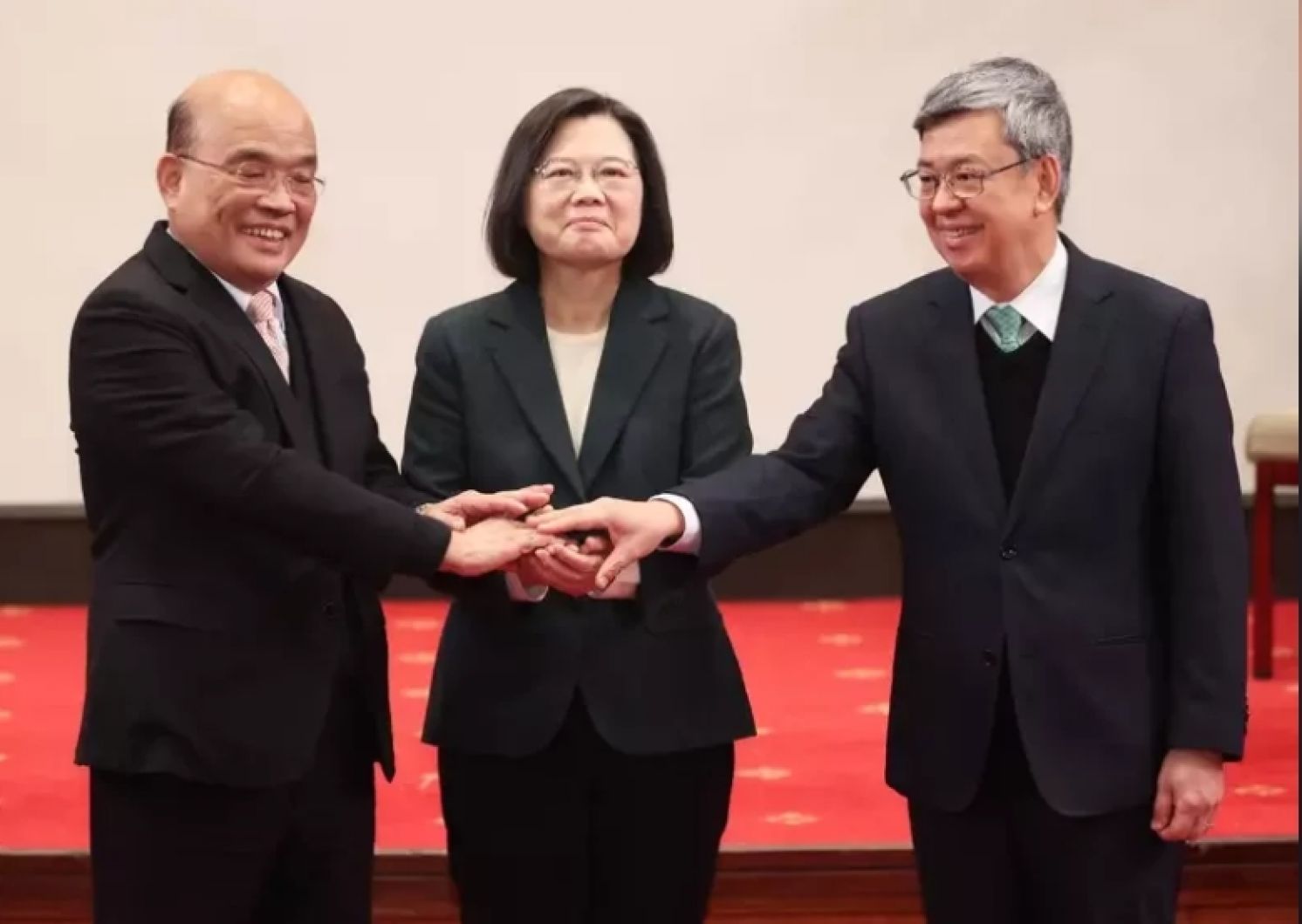
What Does President Tsai Want to Achieve in Her Remaining Time in Office?
United Daily News Editorial, February 22, 2023
The cabinet led by Premier Chen Chien-jen has been announced, and President Tsai Ing-wen has one last year remaining in her presidency. Compared with previous leaders, President Ma Ying-jeou achieved his goals for the Ma-Xi meeting before the end of his term, President Chen Shui-bian ended his term in chaos amidst accusations of corruption suspicions, and President Lee Teng-hui saw the transition of power from the Kuomintang (KMT) to the Democratic Progressive Party (DPP). President Tsai cannot spend the last year solely focusing on protecting her power but should think of what report card she will be handing in in her final term.
As the American Chamber of Commerce indicated, a top priority of Taiwan's current governmental affairs is cross-strait relations, followed by national security. During the Tsai administration, cross-strait relations have greatly suffered, and the Taiwan Strait is in danger of a possible war. It has almost been declared that President Tsai's cross-strait policy may end in failure.
Twenty-five years ago, Tsai made her political debut when she participated in the visit by then-Chairman Koo Chen-fu of the Straits Exchange Foundation as an advisory member of the Mainland Affairs Council. Going to the mainland to ease tensions was an attempt to rebuild relations between the two sides of the Taiwan Strait after the interruption of exchanges between the two sessions. Koo expressed his position clearly with "One China is the Republic of China" and wisely resolved the differences between the two sides. That's why it was described as an "ice melting" trip. Although cross-strait institutional consultations have been repeatedly interrupted, the two sides and the two associations still maintain channels and operations that can play a role when necessary. Therefore, both sides maintain certain expectations for the role of the associations.
Recently, the two sides of the Taiwan Strait have successively adjusted the personnel of the two associations and re-strategized when it comes to cross-strait relations. Media outlets have reported that cross-strait relations this year may have a possible revival. In President Tsai’s New Year’s Day address, she mentioned Xi Jinping’s softer words towards Taiwan, which is a rare occurrence for her. At the Spring Festival reception for Taiwanese businessmen, she also reiterated her willingness to start a dialogue with the Beijing authorities. Wang Huning, also proposed to Vice Chairman Andrew Hsia of the KMT, that the top priority now is to restore the normalization of cross-strait exchanges as soon as possible. Both sides of the strait have revealed a friendlier tone. President Tsai wants to make the best use of the situation and turn the worst ever cross-strait relationship into "normal people-to-people exchanges." Whether President Tsai can turn the relationship around depends on her political wisdom and determination.
Of course, cross-strait relations are not the only issues at hand that need to be resolved. For example, the Tsai administration has only done half of the pension reform. In response to this, scholars have even described "the bankruptcy of labor insurance is more likely than the Communist China’s attack on Taiwan." Another example is that President Tsai's social housing policy has been severely delayed. Housing prices remain high, and young people cannot live comfortably with low wages. In addition, the current energy policy is wrong and poses an immediate and obvious threat. To explain, the ongoing aggressive energy transformation with an exaggerated net-zero roadmap is one that shuts nuclear power plants down by decommission while natural gas supply, from where local environmental protection disputes have risen, cannot catch up. Companies like the Taiwan Semiconductor Manufacturing Company (TSMC) are very worried about a possible power shortage crisis, and the Tsai administration is turning a blind eye to it. But what kind of Taiwan does Tsai want to leave to the younger generation? The Tsai administration has the responsibility to work hard to make amends in the final term of office, and to solve the problem for the future of the country.
President Tsai does not seem to be thinking about these issues. What she wants to do the most is to leave a mark in history, possibly by emulating President Lee Teng-hui’s visit to the United States and give a speech at her alma mater just as Lee did, or by speaking at the U.S. Congress like the Ukrainian president. Rumor has it that Representative to the U.S. Hsiao Bi-khim's recent return to Taiwan to report on her duties has to do with such related arrangements. If President Tsai achieves her goal by paying money, it will only be achieving her personal goals and may not help national interest.
In fact, President Tsai’s "ice-melting journey" with Koo was to melt the tensions caused by President Lee’s visit to the United States. Now that cross-strait relations are in such a bad state, if President Tsai wants to continue to stir up trouble in the U.S.-China-Taiwan relationship, Communist China’s possible retaliation will be even worse than Pelosi’s visit to Taiwan, which will exacerbate the tension in the Taiwan Strait. This type of behavior puts the country in danger, and is not something a responsible president should do.
When President Tsai took office, she interpreted people’s election of her as expecting she could solve problems. So far, it's not clear what problems she has solved. Now that the Chen cabinet has immediately caused problems upon taking office, it remains to be proven what problems it can solve for President Tsai. But President Tsai should stop creating more problems for Taiwan's security and cross-strait relations at the very least. If you want to leave a report card of "peacefully protecting Taiwan", time is very limited. President Tsai, please work harder.